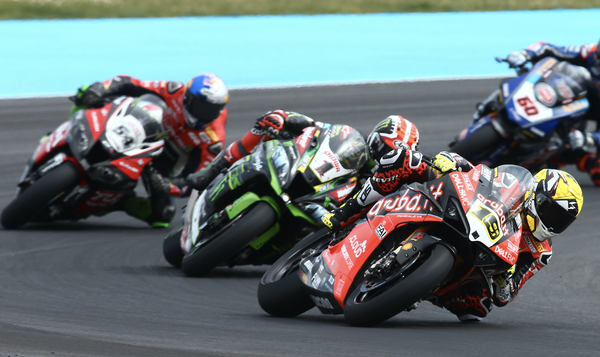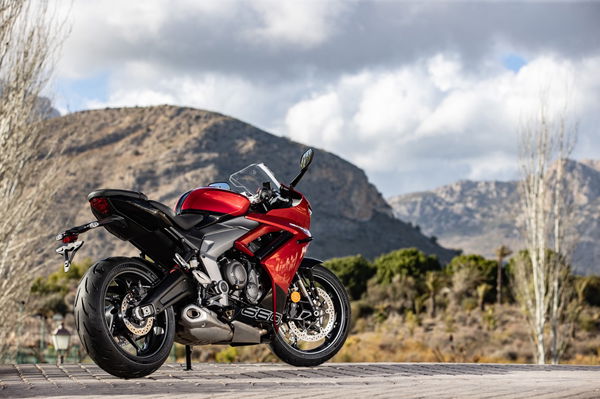Why is Jonathan Rea being singled out over WorldSBK boycott drama?
Jonathan Rea has taken the brunt of criticism from rivals over his decision to renege on a WorldSBK rider boycott in Argentina - but is the backlash fair?
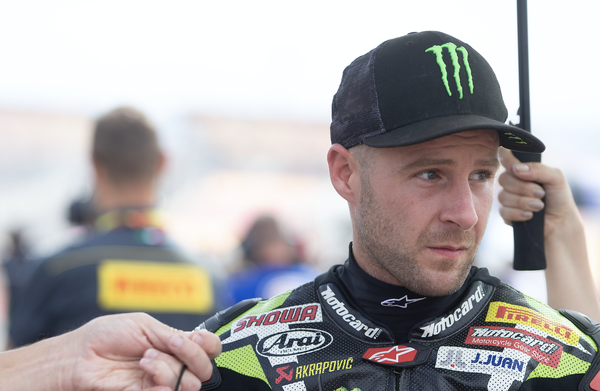
While the overall decision to race on in San Juan Villicum on a WorldSBK circuit that even the FIM allegedly didn’t consider up to homologation standard will likely focus on the governing body’s processes in the coming days, one rider in particular – Jonathan Rea – has also taken a brunt of the criticism to make the start in Argentina.
To recap, six riders – Eugene Laverty, Chaz Davies, Leon Camier, Ryuichi Kiyonari, Marco Melandri and Sandro Cortese – refused to start the first WorldSBK race in Argentina on safety grounds, citing surface oil rising in the high temperatures and layers of dust as being too dangerous to race on.
That meant 12 of the 18 riders did make the start, with the race going ahead as planned. However, a statement from the six boycotters suggest it originally had a majority of 14 riders unwilling to race, which would have possibly seen it cancelled or rearranged.
What followed, according to the riders, were ‘underhand’ tactics by the organisers to pressure teams into forcing its riders to ride as part of its contractual obligations.
Among those to change their view was five-time WorldSBK World Champion Rea, who was accused of being ‘spineless’ by Laverty, while Davies says he was ‘super disappointed’ to see the Kawasaki rider change his mind minutes before the race, suggesting his withdrawal of support had the effect of making the protest collapse.
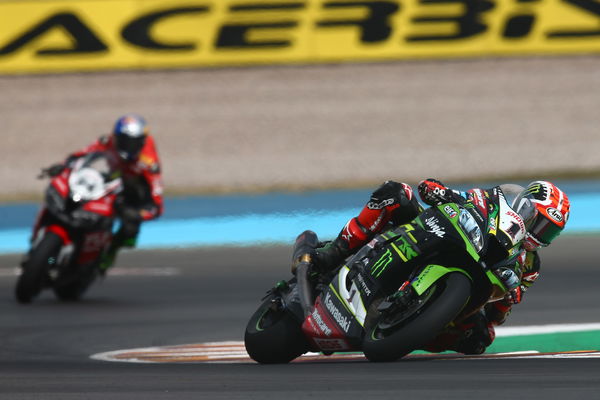
Why did Jonathan Rea change his mind?
Though Rea himself has remained relatively quiet on the matter, that alone leads to the conclusion that he did indeed come under pressure from within to line up and it is unlikely he’d want to have too much of an opinion against his Kawasaki team if true.
It is entirely believable Rea – who had been critical of the conditions on Friday - was genuine about not wanting to compete and, having wrapped up his riders’ title, one could wonder why he’d even need to bother starting.
However, while Rea has sprinted away to his title, things are much tighter in the WorldSBK Manufacturers’ battle which, depending on who you ask, is the more significant championship, especially for those pulling the purse strings.
Prior to the race Kawasaki had a 34-point lead over Ducati. Had no Kawasaki rider started and Alvaro Bautista gone on to win as he did, this would be down to just nine points with five races on Ducati-favourable circuits (Qatar included) to come.
Indeed, it is understood Leon Haslam and Jordi Torres were also prepared to stand down – and weren’t even in their leathers minutes before competing – but would take up their spot on the grid. With this in mind, it is perhaps no coincidence all five Kawasaki riders did indeed start.
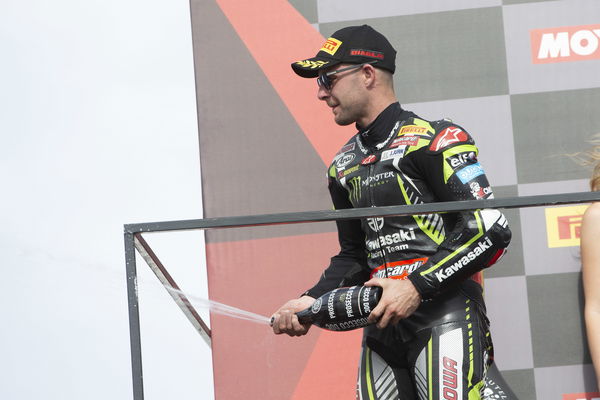
Is Jonathan Rea in an impossible situation?
While the boycotting riders are likely to sympathise with this quandary over pressure from Kawasaki in a title-contending situation, the crux of the issue is Rea’s status as rider safety commissioner, or as Davies put it ‘he speaks for 10 to 15 of us’.
No rider – in theory – should be bigger than the championship he or she is competing in, but out of anyone Rea’s opinions and actions would come with a significant amount of clout, not least because if he genuinely believed the circuit to be dangerous, then his standing as safety commissioner should have carried weight without external pressure.
Of course, we’re unlikely to know exactly how those conversations behind the scenes went – whether Rea tried to dig his heels in to boycott before being given a difficult ultimatum – but it’s a messy episode for all concerned, whether it’s the riders, teams, officials or organisers.
Indeed, Rea withdrawing alone would have unlikely made a difference to the race going ahead, but by standing ground he might have galvanised the ranks so as to call the FIM and Dorna’s bluff and force it to cancel or go ahead with only four bikes racing.
Either way, one wonders if changing his mind makes his status as ‘the voice’ of a united front untenable in the circumstances going forward.
